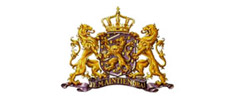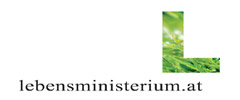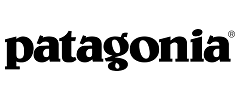Water, Sanitation and Gender Equal Development
International conference organised by WECF and FOE Georgia in Tiblisi, Georgia, gave concrete examples gender equal local sustainable development projects
18.12.2015 |

Minister speaking at EWA Conference in Tiblisi, Georgia
The Greens Movement of Georgia (Friends of the Earth Georgia) organised alongside WECF an international conference within the "Empower Women – Benefit (for) All" (EWA) program with the aim to initiate national consultations on water, sanitation towards gender-equal and sustainable development.
As input and inspiration, the results of the project “Empowering Women Benefit for All” were shared with the participants giving concrete examples of gender equal local sustainable development projects in the areas of food, energy, water and sanitation from Georgia but also from the other countries involved in the program, such as Kyrgyzstan, Tajikistan and South Africa.
“Sustainable management of natural resources, including water resources, sanitation and gender equality are essential components of SDG”, said Mr. Gigla Agulashvili, Minister of Environment and Natural Resources Protection of Georgia in his opening. He has a special interest in the long-term results and the conference resolution. Also Mr. Jos Douma, Ambassador of the Netherlands to Georgia, welcomed the conference and highlighted the crucial role of water, sanitation and women’s empowerment.
Empower women in all spheres
Ms. Birguy Lamizana, UNEP, presented a global perspective on water, sanitation and wastewater management and the need for a holistic approach with the sectors of health protection, food security and energy.
Ms. Sascha Gabizon, Executive Director of WECF, introduced the results of the EWA program to the participants of the conference. The objectives in the EWA program were to improve livelihood, to create income generation and access to credits for women and in addition to empower women in all spheres. As the rest of the day’s conference specifically focused on the situation in Georgia, she started with a few examples from the other 5 countries involved in this global project. In South Africa women-run food gardens in former townships are producing healthy food and additional income thanks also to cooperation with the local authorities who provide a 100 year free lease. In Uganda, 6000 women small-holder farmers were trained on permaculture and conservation agriculture and the creation of women´s “saving and credit” groups. In Kyrgyzstan early food growing methods were adopted and innovative solar food processing methods.
At the conference in Tiblisi, the EWA partners from Georgia participated and presented the results of the project in the exhibition. Rural Community Development Agency, Association of Ecological Farmers "Sema", Society Development Centre of Akhaltsikhe and Women NGO "Paros" let the conference participants taste and buy their jams, fruits and herbs which were dried in modern solar driers as part of the project’s women’s economic empowerment activities.
Everyday challenges for rural communities
The next part of the conference focus on water and sanitation in Georgia, which rural women have indicated as one of their priority areas (income, energy, water & sanitation). Mr. Alexander Mindorashvili, of Georgia’s Ministry of Environment presented Georgia’s activities under the UNECE/WHO Protocol on Water and Health. The process to set ‘target’ has started with national consultations as part of “National Policy Dialogue sessions” in the country.
Ms. Rusudan Simonidze, Greens Movement of Georgia/Friends of the Earth Georgia, explained the challenges which local rural communities face every day in terms of water supply and sanitation. For the large majority of drinking water wells, the quality of the drinking water is not tested and it is often unsafe to drink. Since the institution for sanitary inspection was dissolved, there no longer exist institutional structures responsible for the quality of drinking water from small scale water supplies.
Ms. Anna Samwel of WECF Georgia, shared the experience made with the 2 ‘mobile water laboratories” which WECF uses to test water wells in Georgia, it found that many of the wells which villagers believed to be ‘safe’ contained dangerous bacteria from human excreta.
Ms. Rusudan Simonidze also shared how their NGO does local capacity building on water and sanitation safety planning and did a number of water tests, simple ones with nitrate test sticks and more advanced ones using WECF’s mobile laboratory. When the tests showed that sources were unsafe, the NGOs raised awareness about the situation and people stopped using them.
The SDGs: equal access for all groups in society
Ms. Claudia Wendland, water and sanitation specialist at WECF, introduced the global picture of the new “Sustainable Development Goals”, especially goal 6 on water and sanitation. Compared to the MDG (Millennium Development Goals) monitoring, the SDG Goal 6 set as targets that water quality and sanitation systems are safely managed. A difference from the MDGs is also the focus is on equal access for all groups in the society, men and women, rich and poor and minorities, thus the SDGs are based on the human right to water and sanitation. This is especially relevant for Georgia as it is one of the countries with the biggest increase in the gap of access to water between the rich and the poor (WHO/UNICEF 2015).
Tamar Aladashvili, of the Ministry of Environment, presented the activities which the ministry has started to be prepared for the upcoming SDG monitoring. “Water and Gender Equality are two key priorities for the population”, said Ms Aladashvili came out of a survey which was done to identify main priorities for the people.
Ms. Birguy Lamizana of UNEP (United Nations Environment Program) presented UNEP’s Global Wastewater Initiative (GW2I) which is a multi-stakeholder platform to share best practices in the area of wastewater management, and to prompt coordinated action and new investments in the sector. Ms. Lamizana presented how the GW2I aims to increase priorities for wastewater management in water politics, to prevent further pollution from wastewater and to emphasize and demonstrate that wastewater is a valuable resource and key for future water security. The first model project under this GW2I initiative has been implemented at the Black Sea in Georgia and demonstrates a holistic approach towards sanitation and wastewater management. Ms. Bistra Mihaylova, WECF, presented the case of the two villages in Khobi district where an integrated set of measures for improved wastewater management, sanitation and protection of the Black Sea have been realised.
70 participants from civil society, from different ministerial departments (environment, health, rural development), from science and media attended the conference. The many questions and answers led to lively discussions on the unsatisfactory legal situation of water quality monitoring, which was a crucial topic.
Participants also discussed how national targets under the Protocol on Water and Health (PWH) and the SDGs could be monitored and achieved by strongly involving women and men from civil society. Noted was that access to safe drinking water and sanitation are main goals in the sustainable development plan.
At the end of the conference, participants committed to developing a "non-governmental organizations and experts' positions - about water, sanitation and gender-equal development" based on the discussions and results of the conference, to be submitted to the line government agencies and ministries.
The conference was part of the "Empower Women - Benefit (for) All" program, which is implemented by WECF with financial support from the Ministry of Foreign Affairs of the Netherlands. Projects within the program are implemented by the NGO coalition partners; the Greens Movement of Georgia / Friends of the Earth Georgia, Rural Community Development Agency, Association of Ecological Farmers "Sema", Society Development Centre of Akhaltsikhe and Women NGO "Paros".
WECF & Georgian CSOs host Intl Conf on #Water #Sanitation #SDGs #Gender withMinister Environment @UNEP & Dutch Amb. pic.twitter.com/gTbVFsnmrV
— WECF_INTERNATIONAL (@WECF_INT) November 5, 2015Related News
WECF contributes to Asian Development Bank Country Gender Assessment of Tajikistan
Country Gender Assessment of Tajikistan re-examines the gender equality situation in this Central Asian country and identifies critical issues
01.08.2016
EWA: Recommendations to the Georgian Government
The Greens Movement of Georgia and a Coalition of Partner Organizations published Recommendations to the Georgian Government
03.06.2016
WECF publishes analysis of CEDAW Reports on Georgia, Kyrgyzstan, Tajikistan and South Africa
The WECF report analyses the existing legislative barriers to gender equality which obstruct women’s empowerment and gender parity. The research is based on the reports each country submitted to the Committee of the Convention on the Elimination of all Forms of Discrimination Against Women (CEDAW).
18.04.2016
Water, Sanitation and Gender Equal Development
International conference organised by WECF and FOE Georgia in Tiblisi, Georgia, gave concrete examples gender equal local sustainable development projects
18.12.2015
Highlighting the close interrelations between Gender and Environment
WECF holds Workshop on “Women, Gender and the Environment” for US Students at the University of Utrecht, The Netherlands
07.10.2015






































